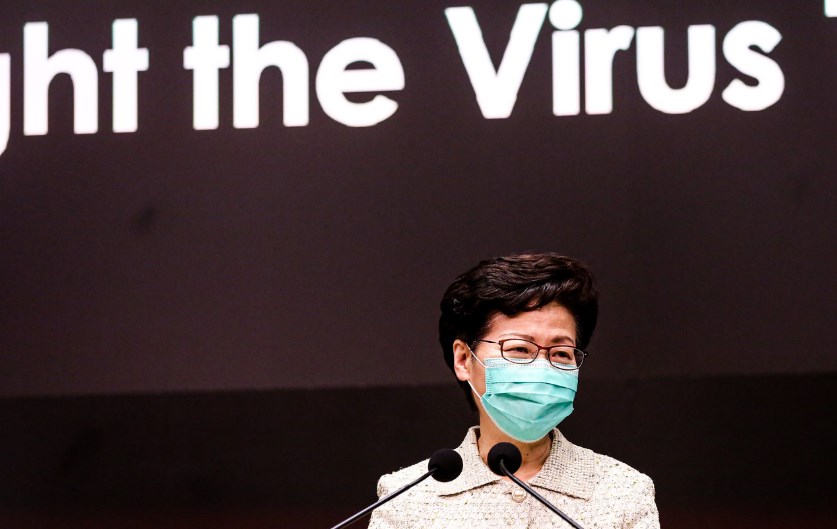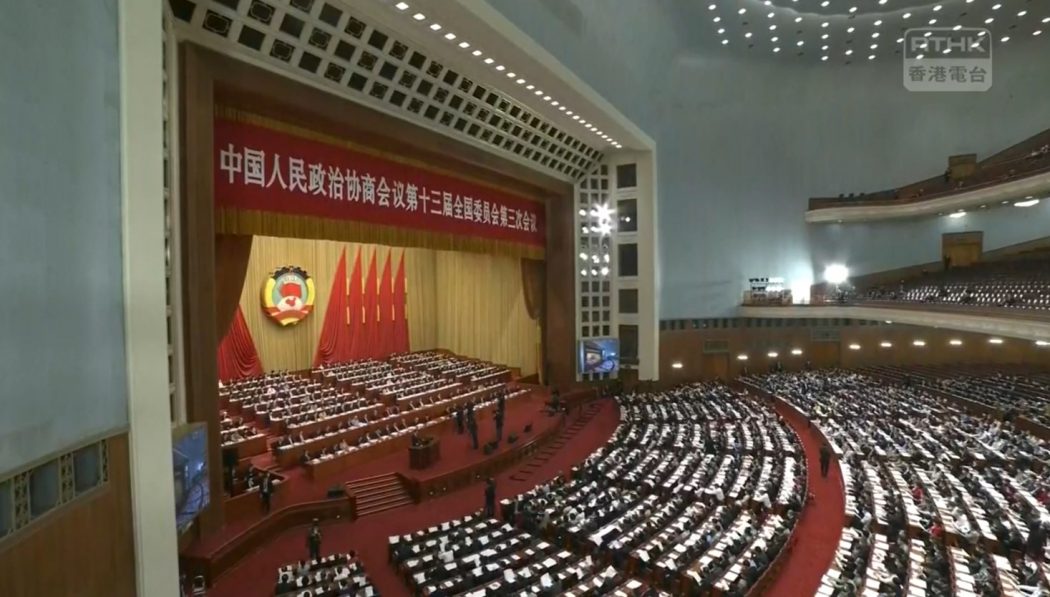The Chinese Communist Party (CCP) convened the Central Committee in Beijing in late October 2019. The committee endorsed a decision that apparently has great significance for governance in Hong Kong and the future of One Country, Two Systems.
At a press conference on November 1, party leaders let the world know that the Central Committee had decided to exercise “comprehensive jurisdiction” over Hong Kong.
Authorities also indicated that they believed the months-long increasingly violent protest in the city had its origins in foreign interference, Hong Kong’s colonial education system, and our colonial civil service.

Action to implement the decision came swiftly. First, authorities revealed that they had upgraded the bureaucratic rank of the Liaison Office and the Hong Kong and Macau Affairs Office (HKMAO).
The party then unveiled Hong Kong’s new party secretary, Luo Huining, a much higher profile senior party cadre with no HKMAO experience. Lack of such experience was a deliberate choice.
The party may have perceived that the then party offices dealing with Hong Kong were no longer fit for purpose, staffed as they were by “soft” officials who may have been captured by Hong Kong and Macau.
This had happened before, witness Xu Jiatun (head of NCNA in 1983-1990), who fled to the USA in the wake of the June 4, 1989, pro-democracy movement that split the CCP leadership. The party also appointed senior cadre Xia Baolong to head an upgraded HKMAO.

Second, authorities began drafting a national security law for Hong Kong, of which we have heard much recently. That this is only being discussed now is because the National People’s Congress meeting, which has approved the plan to implement the law, was delayed by the pandemic.
The resolution on the law indicates that mainland national security officials will establish an official office in Hong Kong, probably not inside the Hong Kong police. This is for the simple reason that national security extends beyond policing.
Already the central government appoints the heads of Hong Kong’s Customs and Excise and Immigration, which also play a role. Beijing also appoints the head of the Independent Commission Against Corruption, which could come under this arrangement, too, but perhaps further down the road.
Third, authorities reiterated publicly the authority of the Liaison Office and HKMAO to supervise the Hong Kong government. That is, they are not covered by Hong Kong’s Basic Law Article 22. These agencies are now energetically commenting on Hong Kong matters, making the party’s position very clear.
Fourth, authorities replaced officials of the Hong Kong government, who they perceived to have failed to manage their portfolios properly (for example, civil service management), or were too passive (home affairs, in charge of disqualifying candidates in elections).

Fifth, when the issue of a DSE exam question emerged, the party took the opportunity to reiterate its view that Hong Kong’s school system was not fit for purpose (it continued to be colonial as authorities in Hong Kong had failed to establish a new education system after 1997).
The party mobilised our chief executive to denounce teachers as poisoning Hong Kong’s youth. She has since distanced herself somewhat from this position, describing the setting of the exam question as a “professional” mistake and indicating that she did not foresee an educational revolution any time soon.
She and the Hong Kong government are in a dilemma. She is a product of the colonial education system, indicating that the system can also produce graduates with “correct” thinking.
Authorities need to tread carefully on only the most offensive parts. Attention has focused on two areas of the DSE: liberal studies and Chinese history, not the entire school system, which because it is largely church-managed, continues to be colonial.

Beijing has so far not published the October Central Committee decision. This secrecy sows distrust. Even based on the party’s policy that “if you need to know, you know; if you don’t know, you don’t need to know,” crafted during the civil war period when the party was out of power, the party has refused to share the contents of the policy widely. Yet the party depends on the people of Hong Kong to implement it.
Witness the official confusion about the status of the Liaison Office and the HKMAO in Hong Kong. Our most senior official in charge of constitutional and mainland affairs needed three attempts to get the explanation right.
Had the party shared at least with the Hong Kong government its policy and strategy, this could have been avoided. The mistakes demonstrate the incompetence of the Hong Kong government and further erode trust in the government.

The CCP traditionally exercises power on the mainland by recruiting party members in all strategically important organisations. This would involve open recruitment of party members in national security agencies and perhaps education, for a start.
Only in this way can the CCP ensure that party policy is implemented. This method of control, much more reliable, will see the further sidelining of the current crop of united front elites (NPC and CPPCC delegates), who have proven to be of limited use.
Also, and more importantly, the CCP exercises power by tightly controlling personnel administration (our Civil Service Bureau). We do have a new Secretary for the Civil Service, but he made the Article 22 blunder.
Unfortunately for the CCP the government of former Chief Executive Tung Chee-hwa, in an apparent short-sighted cost-cutting move, abolished civil service pensions for new recruits in 1999. Pensions are an effective means of controlling the civil service. Do we need to restore pensions?
High levels of distrust between the mainland and Hong Kong means that the party perceives that it cannot share its strategy for Hong Kong openly with the people here. Yet it is on us that the party depends to implement the strategy. Not sharing the strategy only leads to further mistrust.

For now, we are left guessing the content of the Central Committee document. For the sections relating to Hong Kong, perhaps: the international situation, national security, education and culture, media and propaganda, the economy (reforming our tycoon-dominated, low tax, monopolistic economic structure?), the civil service, and party building.
Hong Kong is composed of immigrants from the mainland, many of whom have brought with them their view of the party’s performance. For some, distrust is the only option. For others, more open-minded, the CCP can begin to rebuild trust by moving beyond treating Hong Kong as a war zone.
The party needs to become more transparent and consult the people of Hong Kong. We “need to know, but do not know.”
